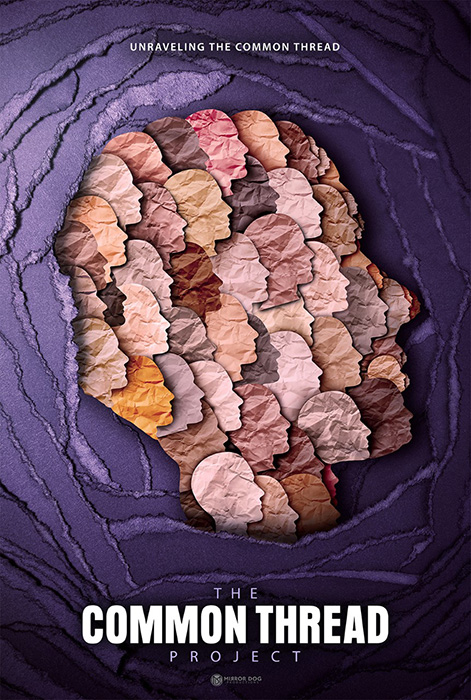Mirror Dog Projects

The Common Thread Project
aftermath.The series delves into our country’s mental health crisis, peeling back the layers of child abuse, human trafficking, domestic violence, suicide and more
DOMESTIC VIOLENCE
Today, more than ever, rise. The past two years have shown an increase in abusive relationships affecting partners and children alike.
- The most dangerous time is when they leave.
- Victims are shunned by family and community.
- Leads to child abuse
- There is a lack of housing support.
- There is weaknesses in the support from law enforcement and legal system.
- Over 43m women & 38m men experience psychological aggression by a partner. Effecting same sex partners as well as heterosexual.
- Teen dating violence about 11m women and 5m men.
- All forms of intimate partner violence are preventable. Strategies to promote healthy, respectful, and nonviolent relationships are part of our prevention.
- Suicide rate increased
SUICIDE
The coronavirus pandemic led to increased diagnoses of depression, anxiety and suicidal ideation.
Talking about mental health does not cause or increase mental health issues or diagnosis but allows for individuals to seek help at lower levels of care.
Most people who commit suicide have a diagnosable mental disorder — most commonly a depressive disorder or a substance use disorder.
Approximately about 18% of people ages 18- 54 in a given year, have an anxiety disorder in a given year.
Here’s a look at how mental health issues impact our communities in the U.S.
- 1 out of every eight emergency room visits involve a mental health or substance abuse disorder.
- Mood disorders, such as depression and bipolar disorder, drive most hospitalizations for Americans under the age of 45, adjusting for pregnancy and childbirth.
- Among individuals experiencing housing insecurity, 20.8% have a serious mental health condition.
- The majority of youth (70%) in juvenile detention centers have been diagnosed with a mental health disorder,
- Severe mental health conditions cost the U.S. economy $193.2 billion in lost revenue.
If you or someone you know is experiencing a mental health condition, help is available and accessible. You can call or text ‘988’ (or chat online on 988 Suicide & Crisis Lifeline’s website) for free, confidential, and immediate help. You can also call 1-800-662-HELP (4357) to access the Substance Abuse and Mental Health Services Administration 24/7 helpline.
